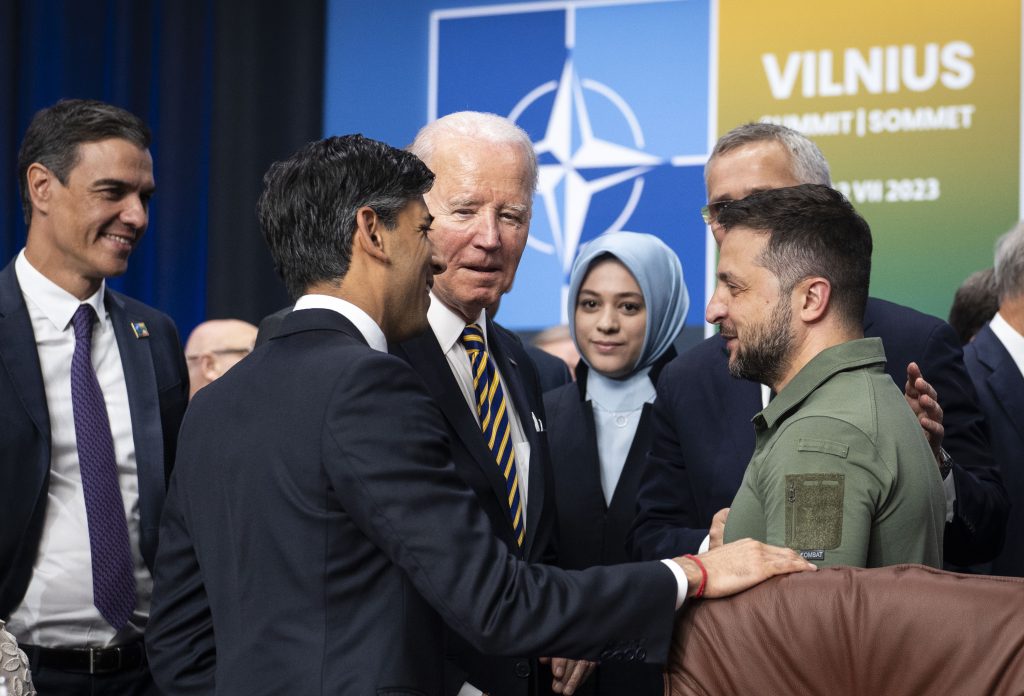Failure of the War Party

by Ralph Berry
‘In war’ said Clausewitz ‘everything is very simple, but the simplest thing is difficult.’ For an anthology of the simplest things we need look no further than the media commentaries on the Ukraine war. They are for the most part distilled simplicity, which in any other context than the holy cause of defeating Russia would be dismissed as ‘simplistic’. First, the outcome of the war. This must be total victory for Ukraine, with all Russian elements expunged from Ukraine for ever–leaving Russia a malignant incubus perched on Ukraine’s shoulder. Yet serious commentators like Charles Moore have fallen for this nonsense. Simplicity has over-reached itself.
Then, the means. The big talk of the offensive has died down, and even the Ukrainians admit that it has stalled. They simply do not have the 3-1 manpower superiority that the offensive needs. All indentations in the Russian defensive lines are soon covered. Ukraine then calls for more technological aid, and the US has given permission to European countries to provide FI6 fighters after training for Ukrainian pilots.
This will take time, and is not expected to be completed until early next year. (!) I do wonder if manned aircraft will be exposed to the Russian prowess in drones. It would be a pity to be wrong, even once.
As for tanks, it would be a kindness not to dwell on these overweight feebletons which require help, like elderly airline passengers, to get a lift on to and off the battlefield. It is clearly policy to keep tanks out of harm’s way, notwithstanding the love and affection lavished on them by retired armoured brigade officers. But the writing was on the wall ever since the start of the Ukraine war, when a beardless boy with a clever British device took out a Russian tank of a type that had seen good service since Operation Bagration.
The Russians have clearly decided that time is on their side. They need only hold their positions, occasionally lobbing a drone over. It will kill a mere handful but will remind the opposition of what they are capable. They need only wait till the Ukrainian war effort expends itself in war-weariness. The Ukrainians agree with this assessment, hence the intensity of their pleas for more support from their doubting allies. Their unique sales point is the nobility of their cause. ‘But if the cause be not good?’ asks the common soldier of King Henry before Agincourt. Zelensky has just fired his regional commanders, all of them, on account of the corruption they were all guilty of. It appears that they behaved like a Roman proconsul, for whom a newly-assigned province was an invitation to enrich himself, rapidly. The moral case for Ukraine is unravelling.
So is the political case. Denmark and the Netherlands are the first in NATO to send F-16s to Ukraine. This is merely heavy breathing by the gang. The great question remains unanswered: will Biden permit these planes to overfly Ukraine with intent? Answer, for my money, no. There are varying degrees of dissidence in other countries including France, where Macron has never gone back on his view that it is not a good idea to humiliate Russia. Scholz, for all his tactical shifts, has never lost sight of Bismarck’s precept: Make a good treaty with Russia. NATO is not the solid united alliance it pretends to be, and the pretense lasts only so long as it is not tested.
This war cannot be allowed to go on. In Ukrainian towns the Heroes Alley, where their war dead are buried, lengthens without respite. All manner of international relations are deranged by the war. There is no prospect of Russian collapse. If we apply the ‘cui bono?’ test, the first answer is the war profiteers in Zelensky’s court. Only one man can call the combatants to the peace table, and we await the signal from President Biden.